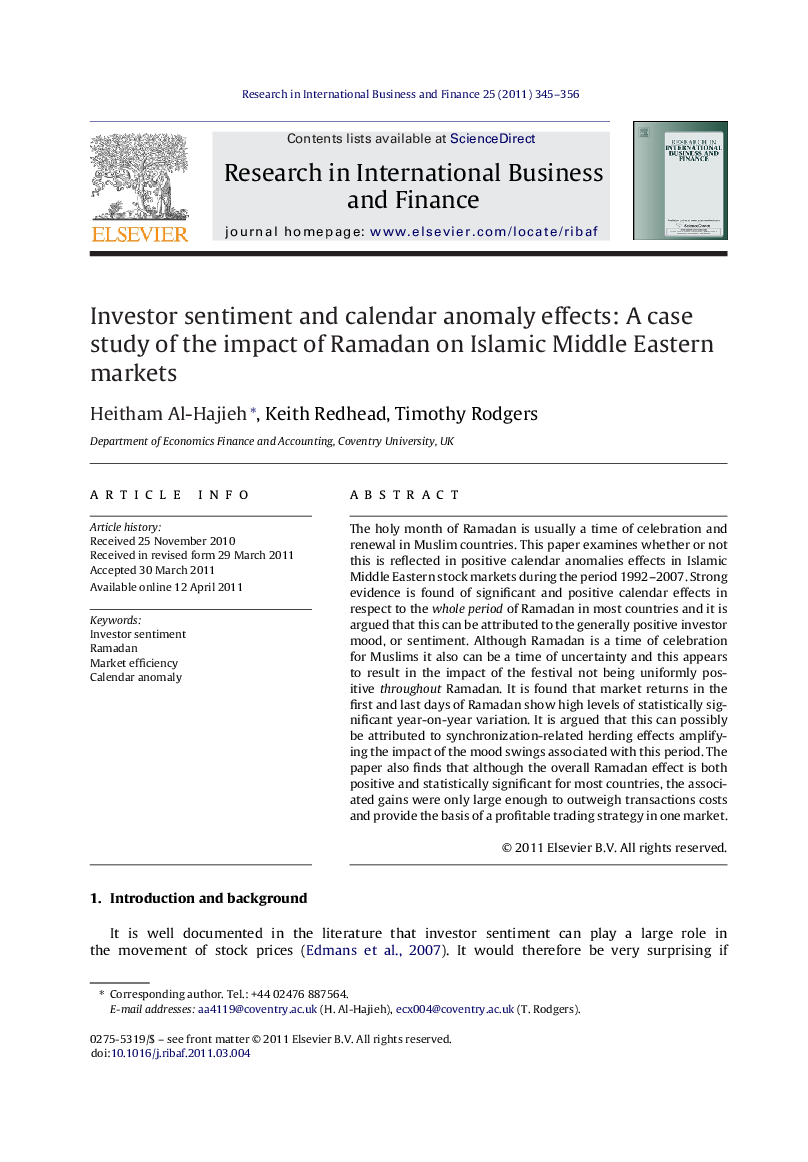| Article ID | Journal | Published Year | Pages | File Type |
|---|---|---|---|---|
| 1003171 | Research in International Business and Finance | 2011 | 12 Pages |
The holy month of Ramadan is usually a time of celebration and renewal in Muslim countries. This paper examines whether or not this is reflected in positive calendar anomalies effects in Islamic Middle Eastern stock markets during the period 1992–2007. Strong evidence is found of significant and positive calendar effects in respect to the whole period of Ramadan in most countries and it is argued that this can be attributed to the generally positive investor mood, or sentiment. Although Ramadan is a time of celebration for Muslims it also can be a time of uncertainty and this appears to result in the impact of the festival not being uniformly positive throughout Ramadan. It is found that market returns in the first and last days of Ramadan show high levels of statistically significant year-on-year variation. It is argued that this can possibly be attributed to synchronization-related herding effects amplifying the impact of the mood swings associated with this period. The paper also finds that although the overall Ramadan effect is both positive and statistically significant for most countries, the associated gains were only large enough to outweigh transactions costs and provide the basis of a profitable trading strategy in one market.
